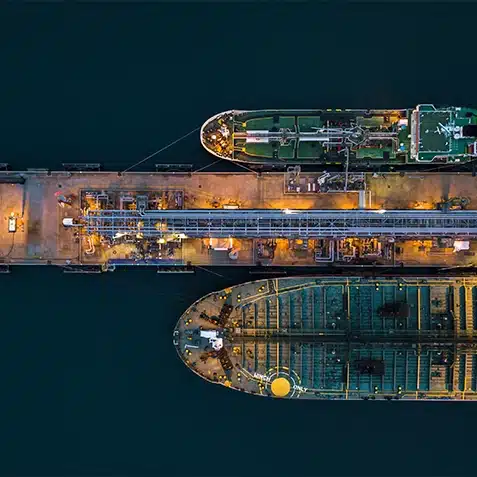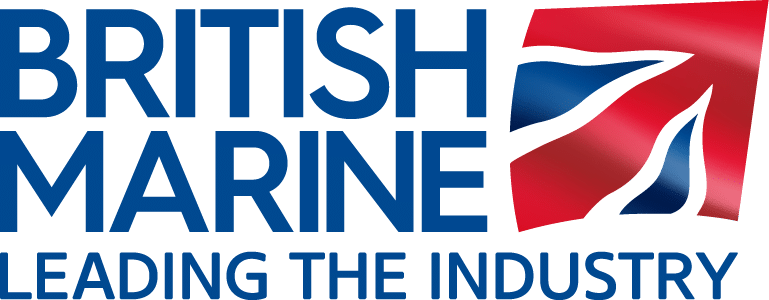Tanker Operations Course
Diploma in Tanker Operations
Tanker Operations
A Tanker Operations Diploma from the MTA provides expert training in oil tanker systems, cargo procedures and international safety standards.
Designed for deck officers, engineers and maritime professionals, this course builds the operational and compliance knowledge needed to work safely and effectively in tanker environments.

Professional Tanker Operations Qualification
Develop the skills required to manage tanker loading, discharge, safety systems and pollution prevention in line with international marine regulations.
Contact us below to enrol today, or speak with our experienced course advisors.

Duration:
12 - 18 months
Learn at your own pace
Online Course:
Study from anywhere

Cost:
Diploma: £3,195
Certificate: £2,295

Recognised by: 
Tanker Operations Diploma vs Certification
Choose the right path for your career:
Comprehensive Training: In cargo handling systems, tanker structure, discharge procedures, STS transfer, safety management and environmental regulations.
Flexible Study Duration: 12 – 18 month depending when you enrol to the program, study online at your own pace, from anywhere in the world.
Marine Industry Career Opportunities: 100% Online, with access to our student learning portal
Long-Term Career Impact: Tanker Operations Officer, Cargo Planner, Safety Compliance Coordinator, Oil Tanker Crew Supervisor.
Global Recognition: Our Diplomas are recognised by the University of Portsmouth and are supported by industry associations.
Assignments: One assignment is required to be completed and submitted at the end of each module, based on that particular subject.
Certification: you will receive a PDF Digital certificate (Printed Certificate Completion Pack available).
Final Examination: There will be a final examination upon completing and submitting all student assignments (exams are sat in April or October).
Post-Nominal letters: On passing the Diploma you can also use these letters after your name: MTA Dip MTank
Digital Course Badge: Upon successful completion students will receive an exclusive course badge for use on business cards, LinkedIn profiles and website(s)!
Diploma - £3,195
A globally recognised qualification for careers in tanker operations, oil cargo handling and onboard safety compliance.
✔
✔
✔
✔
✔
✔
✔
✔
✔
✔
Certificate - £2,295
Specialist Tanker Operations Training without formal assessments, for those who do not require a recognised diploma.
✔
✔
✔
✔
✔
✔
Tanker Operations Curriculum: 9 Modules
Training includes ballast and cargo systems, transfer procedures, pollution prevention and compliance with MARPOL, SOLAS and ISGOTT.
You’ll learn to plan, monitor and report on tanker operations professionally, reducing risk and improving safety performance.
1. Tanker Operations Introduction
- History of the oil tanker
- Types of oil and its characteristics
- Tanker personnel (duties & responsibilities)
- Safety practices onboard
- Environmental factors (IMO Tanker safety – preventing accidental pollution)
- Tanker case histories including:
- Exon Valdez
- Torrey canyon
- The Erika
- The historical evolution of inert gassing on tankers
2. Tanker Design and Construction
- Tanker categories
- Construction of tanker types
- Tanker design and equipment
- Cargo tanks layout and associated equipment
- Inert gas system
- Cargo heating system
- Ship (Tanker) Inspection
3. Tanker Stability, Gauging Systems and Operating Systems
- Safety and stability overview
- The ballast system
- Tank gauging and types of gauging
- Tanker operating systems
4. Cargo Operational Checks and Procedures
- Voyage cargo orders
- Cargo operations terminology
- Cargo handling overview
- The loading plan
- Terminal safety regulations
- Emergency procedures onboard oil tankers
- Piping, manifold with cargo hoses and their handling
- Loading and unloading cargo
- Chemical tanker operation cargo loading preparation overview
- Tank cleaning – crude oil washing (cow)
- Tanker routine checks
5. Cargo Management Systems and Safety Control Systems
- Hazardous areas
- The HVAC system and shutdowns
- Cargo tank gas freeing and purging
- Tank entry and procedure
- Cargo operations forms
- Cargo control system
- The stripping system
- The effects of static electricity
- Control of oil discharge and the ODME for ballast water
- Ship oil pollution emergency plan (SOPEP)
- Safe operation of tankers
6. Tanker Fire Safety and Maintenance Systems
- Active firefighting systems
- Foam delivery systems
- Accommodation sprinkler systems
- CO2 system
- Water mist system
- Inergen fire suppressant system
- Passive fire protection systems
- General firefighting equipment
- Fire and gas systems
- Planned maintenance systems
- Material safety data sheets
7. Shuttle Tankers /FSU/MCV Operations
- Shuttle/offtake tanker and associated systems
- Shuttle tanker – dynamic positioning systems
- Propulsion systems and controls
- Shuttle/offtake tanker firefighting systems
- Shuttle tanker safety equipment
- Competence and manning overview
- Types of mooring systems
- Mooring shuttle tanker to FPSO (fishtailing)
- Pre-tanker berthing checks to SPM
- The floating storage unit (FSU) overview
- Modular capture vessel (MCV)
8. Tanker Law
- Legal concepts
- The Law of Contract
- The Law of Tort (Negligence)
- Liability in Contract and Tort
- Maritime Law
- Admiralty Law and jurisdiction
- International Maritime Law
- Shipboard documentation
- The Flag State
- Governmental control of shipping
- Single – v – double hull tankers
- Pollution
- Contracts and chartering tankers
- Tanker charterparties
- Carriage of goods by sea and international trade
9. International Codes for Tankers & Safety Procedures
- The International Maritime Organisation (IMO)
- Pollution
- Maritime Codes Dealing with Carriage of Dangerous Goods
- Oil Companies International Marine Forum (OCIMF)
- International Safety Guide for Oil Tankers and Terminals (ISGOTT)
Hear from our Students
Meet the Course Director
Ian Bryant
My career spans over 40 years from all operating stages to Chief Engineer on a variety of vessels including cable-laying ships and other offshore assets, such as offshore drilling ships/ rigs and selfpropelled jack-up units.
More recently from 2002, I formed an independent Offshore Consultancy providing a range of services based around training, system procedures and competency for Offshore Blue Chip Companies involved in offshore drilling and the offshore renewables. The renewables relate to Wind Turbine Installation Vessels, HVAC substations and other aspects of the wind energy sector.
Other aspects of work include operations manuals for offshore renewables and oil and gas assets as well as Failure Mode Effect Critical Analysis (FMECAs) for well-known offshore companies.

Tanker Operations Course FAQs
Find out more about the course with our FAQs below.
How do I become qualified to work on a tanker?
Start with a recognised diploma in tanker operations. This course covers the systems, safety protocols and procedures used on oil tankers, ideal for anyone pursuing a career onboard or ashore.
What qualification will I receive from this course?
You’ll earn a Diploma in Tanker Operations from the Maritime Training Academy — recognised across the global shipping and oil transport industries.
Is this course suitable for deck officers or engineers?
Absolutely, this course is ideal for junior officers, marine engineers and operations personnel looking to upskill or transition into tanker-specific roles.
How much do tanker officers earn?
Salaries vary by experience and region, but tanker-qualified crew and officers often earn £45,000 to £90,000+, with premium rates for oil cargo handling and STS expertise.
Does the course include safety systems and cargo operations?
Absolutely. It covers all aspects of tanker operations, including loading and discharge, cargo heating, inert gas systems and pollution control procedures.
Can I take this course without tanker experience?
This course is suitable for professionals entering the tanker sector as well as those already at sea looking to improve their operational knowledge.
See our FAQ page for more questions answered about MTA courses.
Supported by:


Why Choose The Maritime Training Academy?

Flexible
Online learning allows you to study in your own time, at your own pace from anywhere in the world. This saves on travel and classroom costs and allows you to fit your studies around your job and progress your career.

Supportive
While the nature of distance learning is independent study, we recognise the importance of support. Students can contact us at any time during their course for assistance and our team of industry experts are always on hand for advice.

Expertise
We have over 50 industry experts writing, developing and advising on our course material. We truly believe that allowing students to tap into their expertise and knowledge is of the utmost importance to fulfil your dream career.
If you would prefer to complete this as a classroom-based course, please contact us.
